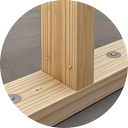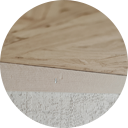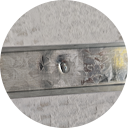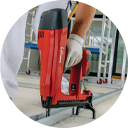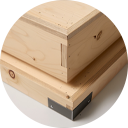What Is the Direct Fastening Behavior in Tension vs Shear Applications
Picking the right fastener can make a construction job shine or flop. Direct fastening, a method where you drive nails or screws into tough stuff like concrete or steel without drilling first, saves time and effort. Qinjia’s got a knack for crafting reliable fasteners for places like North America, the Middle East, Australia, Southeast Asia, and Turkey. Their custom work case studies prove they deliver on big projects. From sturdy supply chains to tight quality checks, Qinjia’s got your back. Whether you’re putting up drywall or anchoring steel beams, this guide helps you choose wisely and shows why Qinjia’s products are a favorite for builders worldwide.
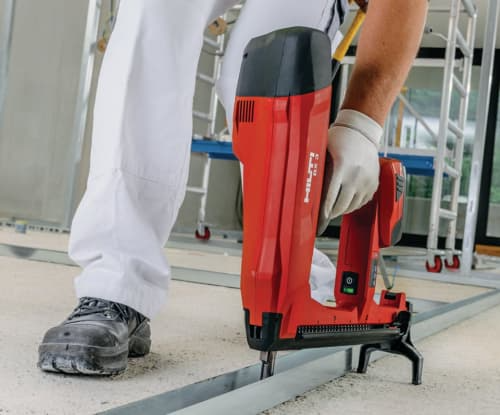
What Is Direct Fastening in Construction?
Direct fastening is a real time-saver in building work. You can slam fasteners into hard materials like concrete, steel, or wood without messing around with a drill. It’s quick, gets the job done fast, and keeps things strong. Imagine nailing a steel plate to a concrete wall in a snap. That’s what direct fastening brings to the table, and builders love it for all sorts of projects.
What Direct Fastening Means
This trick uses special tools, like gas-powered nail guns, to stick fasteners into place right away. It’s built for speed and makes sure connections stay tight, even in tough spots.
Why It’s Great for Fast Jobs
The maker’s know-how comes through in products like Gas Drive Pins. These are made for quick setups in steel or concrete. They help keep projects moving without cutting corners on strength.
Where You See It
You’ll spot direct fastening in huge buildings, bridges, or even home makeovers. It’s handy for tasks like fixing electrical pipes or setting up drywall, making it a go-to for all kinds of construction.
Why Are Tension and Shear Forces Critical in Fastening?
Choosing a fastener means thinking about the forces it’ll face. Tension tries to pull parts apart, like a ceiling panel tugging away from its frame. Shear pushes things side to side, like a steel beam sliding on a concrete base. Pick wrong, and you might end up with cracked walls or worse. Knowing these forces helps you nail the right choice.
What Tension Forces Do
Tension pulls along a fastener’s length, trying to stretch it out. Fasteners need to grip hard to hold things together, especially in shaky spots like machines or hanging ceilings.
What Shear Forces Are
Shear hits sideways, making parts want to slide past each other. A fastener has to stand firm against this push, like when a steel plate is pinned to a concrete wall.
Why Force Matters
Figuring out these forces keeps your project safe. Standards like ASTM or EN 14399 help pick fasteners that won’t give out. The right choice saves time, cash, and a lot of stress.
How Do Drywall Screws Perform in Tension Applications?
When you need a fastener to hold tight against pulling forces, Drywall Screws are a solid bet. They’re perfect for sticking gypsum boards to studs in walls or ceilings. Their design keeps things locked in place, even when tension wants to pull them apart.
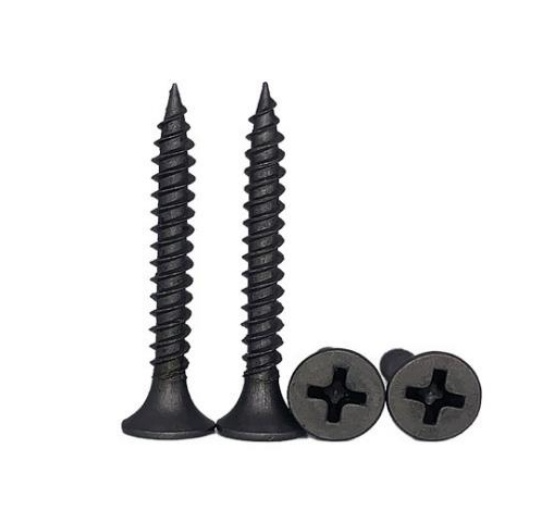
Strong Grip Power
These screws come in coarse threads for wood studs and fine threads for steel, with sizes from M3.5 to M4.2 and lengths of 25 to 75mm. The Bugle head sits flush, giving a tight hold that fights tension from heavy boards or building shakes.
Details on the Screws
Made from tough steel, Drywall Screws have black phosphated or zinc-plated finishes to fend off rust. They’re tested for thread speed and grip strength, packed in boxes or buckets, and can be customized for your job.
Uses in Indoor Projects
You’ll see these screws in office walls or home ceilings, where they handle the pull of gravity or vibrations. For instance, in a busy mall, they keep drywall steady despite constant foot traffic.
How Do Gas Drive Pins Excel in Shear Applications?
If sideways forces are your worry, Gas Drive Pins are the way to go. Used with gas-powered nail guns, they sink into steel or concrete, perfect for jobs where parts might slide under pressure.
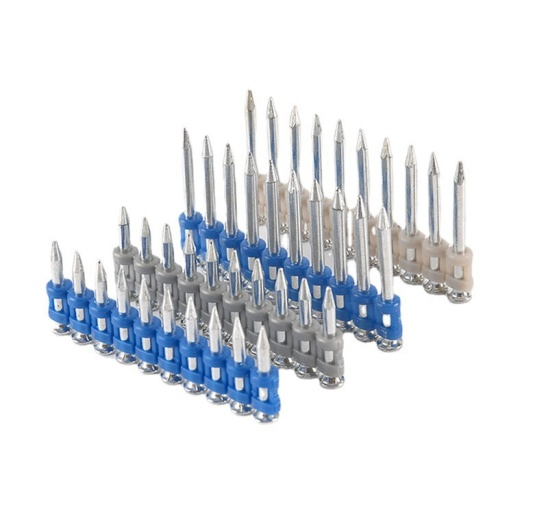
Tough Against Sideways Push
Crafted from high-carbon steel with heat treatment, these pins range from 12 to 62mm long with 6 to 8mm heads. They punch through hard materials and hold strong against sideways stress, like in steel frameworks.
Pin Specs
Gas Drive Pins work with various gas tools, come in boxes or plastic wraps, and include extras like gas canisters. Their sturdy build makes them great for shear-heavy tasks.
Structural Uses
Think of a steel beam fixed to a concrete base. These pins stop it from sliding during wind or quakes, keeping things steady in bridges, factories, or big warehouses.
What Makes These Fasteners Stand Out for Direct Fastening?
You want fasteners that do the job right and last. This maker’s focus on quality and custom options makes their products a cut above, whether you’re tackling a small fix-up or a huge build.
Top-Notch Quality Checks
Every fastener gets checked from start to finish. Tools like thread testers and grip meters make sure they’re up to snuff. Random checks and third-party tests, like SGS or BV, back up their quality, as noted on their service page.
Standards and Custom Fits
These fasteners follow industry rules and can be tweaked to your needs. You get material certificates and test reports to match your project, ensuring everything lines up perfectly.
Proven in Real Projects
From North America to Australia, these fasteners shine in real-world jobs. Whether it’s skyscraper walls or concrete bases, their case studies show they get results. One time, a Middle East project used thousands of pins with zero failures. That’s reliability.
How Can You Choose Between Tension and Shear Fasteners?
Sorting out which fastener to use can feel tricky, but it’s all about the forces and materials you’re dealing with. Whether you’re putting up walls or anchoring beams, picking the right one keeps your project solid.
Figuring Out Forces
First, check what’s pulling or pushing. Tension fasteners, like Drywall Screws, handle pulls. Shear ones, like Gas Drive Pins, stop slides. If both are at play, check standards to make sure the fastener can take it.
Matching to Materials
Drywall Screws work best for wood or steel studs in tension jobs. Gas Drive Pins are great for concrete or steel in shear tasks. The material, like concrete strength or steel type, points you to the right pick.
Getting Expert Help
Qinjia’s team offers advice on what fits best. Drop them a line through their contact page to get tips tailored to your job. They’ve helped tons of builders get it right.
Why Should You Trust These Fasteners for Your Needs?
Your project needs fasteners you can rely on. With a global track record and a focus on quality, Qinjia delivers products that hold up under pressure, backed by great support.
Worldwide Reach
From the U.S. to Turkey, their supply chain delivers fast. They work with distributors to make sure you get what you need, when you need it, no delays.
Solid Support After the Sale
You get tech specs, how-to guides, and a steady supply of extras like gas canisters. If something’s off, their return policy covers quality issues, backed by test reports and photos.
Always Improving
Their team stays on top of trends, like greener coatings or faster tools. They offer custom options for small or big jobs, so you get exactly what your project calls for.
FAQ
Q1: What’s the big difference between tension and shear fasteners?
A: Tension fasteners fight pulling forces that try to separate parts, such as panels from studs. Shear fasteners stop sideways sliding, like steel on concrete.
Q2: How do you know fasteners are good quality for big projects?
A: Full checks, grip tests, and third-party certifications like SGS or BV confirm they’re solid. You also get material reports.
Q3: Can these fasteners be made special for my job?
A: Sure thing, custom designs from thread style to coating are available to fit your project’s exact needs.


